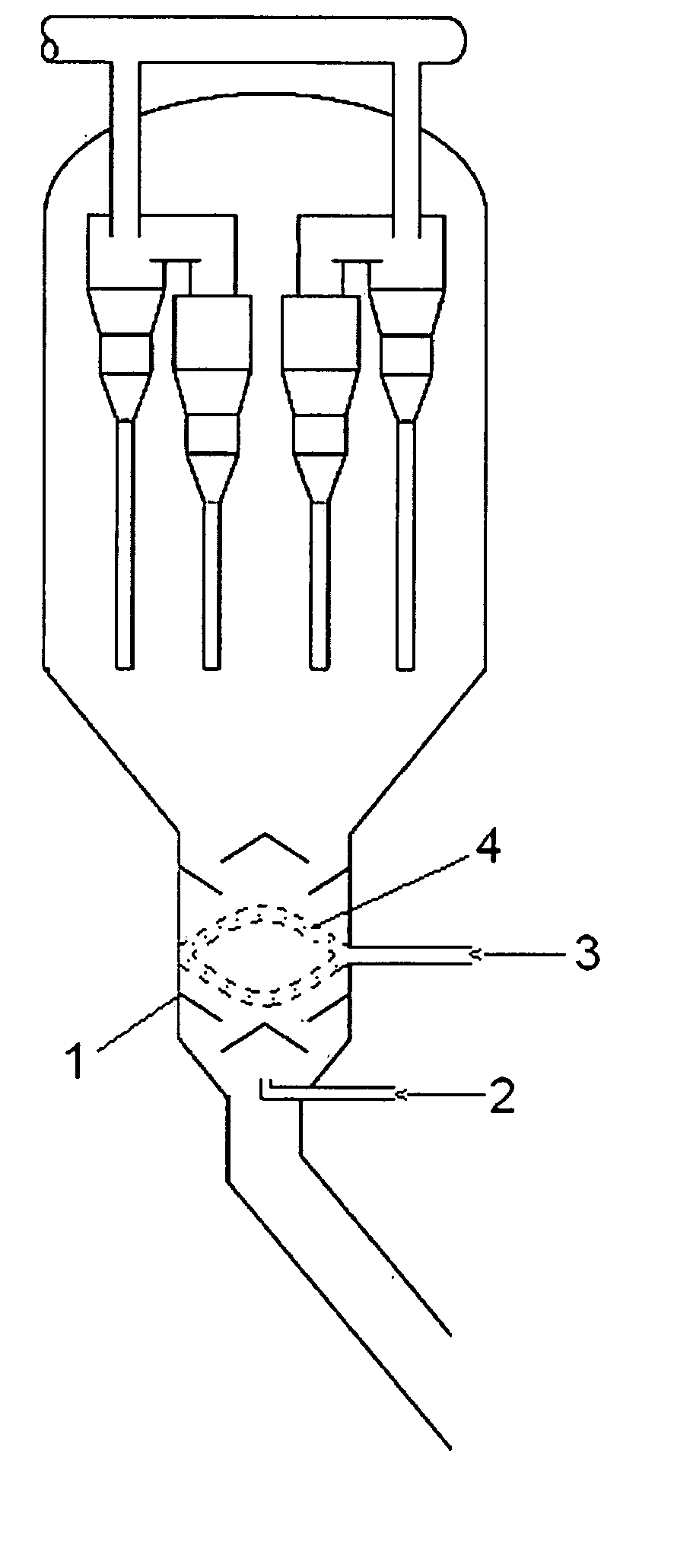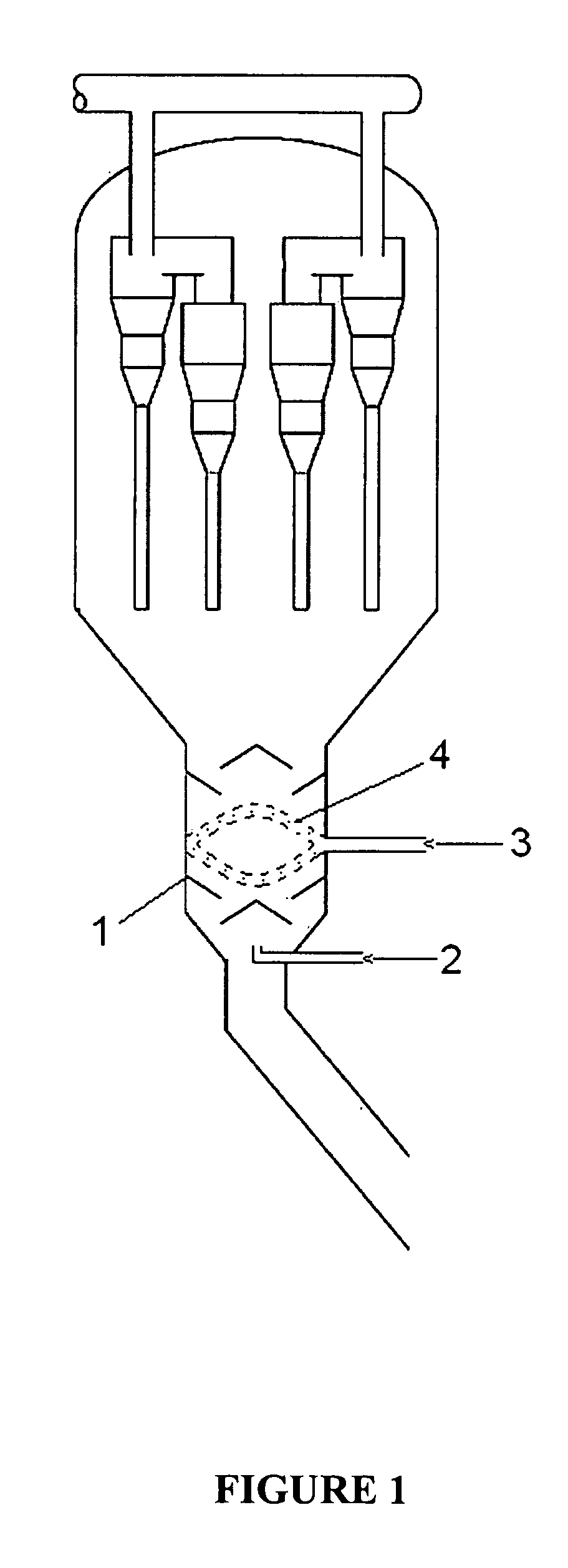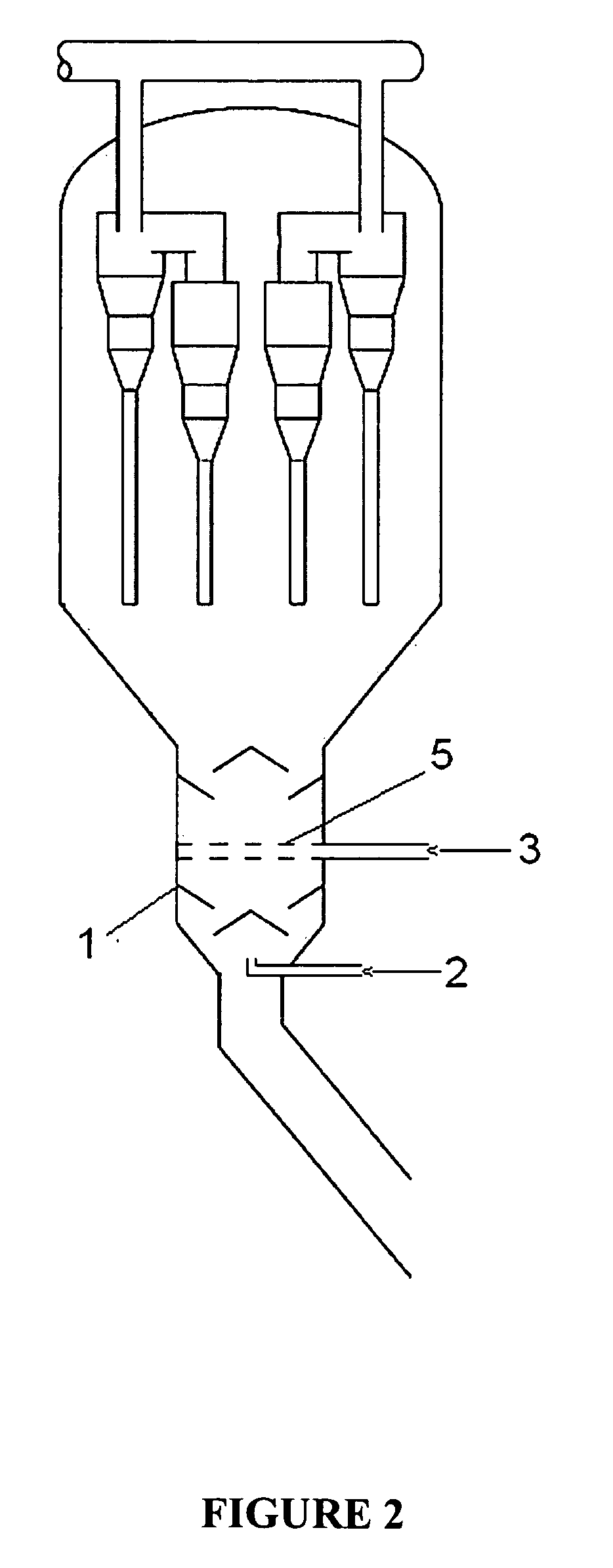Process and device to optimize the yield of fluid catalytic cracking products
a technology of fluid catalytic cracking and process, applied in lighting and heating apparatus, furniture, lighting and heating equipment, etc., can solve the problems of increasing the power consumption of the unit, reducing the total capacity of the fcc unit, and negative effect on the profile of the obtained products
- Summary
- Abstract
- Description
- Claims
- Application Information
AI Technical Summary
Benefits of technology
Problems solved by technology
Method used
Image
Examples
example
[0040] Gasoline obtained by an FCC process was reprocessed both in a lab FCC unit and in an FCC pilot unit, with clean catalyst, simulating the effect of recycling the gasoline in the riser segregated in the sulfur content and in other quality parameters, such as olefins, stability and octane. The results of the two units show a 40% reduction in the total sulfur, achieved primarily by the removal of the alkylthiophens, compounds typically found in the light fraction of naphtha. In addition, a substantial reduction of benzothiophen, characteristic of the heavy naphtha, was also obtained. The olefins content was reduced 40%. Dienes were almost zero, indicating a significant improvement of stability, and there was also a one-point gain in the RON (Research Octane Number) and four points in the MON (Motor Octane Number). Depending on the severity of conditions such as, for example, the riser temperature, there is a loss in gasoline yield that ranges between 25% and 30%, producing 16.5% ...
PUM
| Property | Measurement | Unit |
|---|---|---|
| weight | aaaaa | aaaaa |
| height | aaaaa | aaaaa |
| total height | aaaaa | aaaaa |
Abstract
Description
Claims
Application Information
 Login to View More
Login to View More - R&D
- Intellectual Property
- Life Sciences
- Materials
- Tech Scout
- Unparalleled Data Quality
- Higher Quality Content
- 60% Fewer Hallucinations
Browse by: Latest US Patents, China's latest patents, Technical Efficacy Thesaurus, Application Domain, Technology Topic, Popular Technical Reports.
© 2025 PatSnap. All rights reserved.Legal|Privacy policy|Modern Slavery Act Transparency Statement|Sitemap|About US| Contact US: help@patsnap.com



